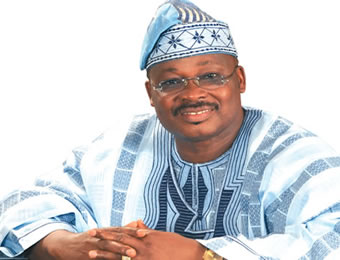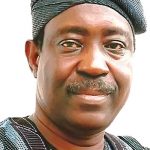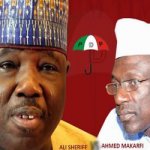In this report, Group Politics Editor, TAIWO ADISA and Deputy Editor, SAM NWAOKO, write on the proposed adoption of the collegiate system in running the affairs of the All Progressives Congress (APC) in the South-West geopolitical zone.
LEADERS of the All Progressives Congress (APC) in the South-West geopolitical zone recently met in Ibadan, the Oyo State capital, where the stakeholders were said to have agreed that a collegiate leadership system should be adopted for running the affairs of the party in the zone.
It was said to have been agreed that each of the states in the zone would have a college of leaders, which would take decisions in matters that affect the respective state chapters of the party.
At the meeting hosted by Senator Abiola Ajimobi, the governor of Oyo State, and attended by his brother APC-governors and leaders of the party, including Senator Bola Tinubu, Chief Adebisi Akande and former governors, Dr Kayode Fayemi of Ekiti State; Babatunde Fashola of Lagos State and Niyi Adebayo of Ekiti State among other leaders, it was said that the move for a collegiate system would create a new kind of leadership for the party and prevent what some saw as the current system in which its leadership is more or less, rested in one man as the leader. The collegiate leadership, it is believed, would allow for the collection of certain leaders in each of the localities to run the affairs of the party and prescribe candidates during election periods.
But that decision, which was said to have been forced through by young Turks within the ranks APC in the South-West came with a huge shock for leaders and followers of the party. Indeed, the decision would have been easily passed as a palace coup, but for the confirmation that the National Leader of the party, who doubles as the regional leader, Senator Tinubu, was in attendance.
Tinubu had naturally assumed the leadership role of the South-West APC, having remained a lone ranger and promoter of the party’s ideals since 2003. Tinubu was the only governor of the Alliance for Democracy (AD) that retained his seat after the tsunami that swept aside the governors of the party in 2003.
He eventually formed the Action Congress (AC) and received joinders. From a one state party, Tinubu grew the AC to winning Osun and Ekiti states, thereby gaining strength, having gained control of half of the South-West states. The party later metamorphosed into the Action Congress of Nigeria (ACN) and then merged with the APC to gain power at the centre.
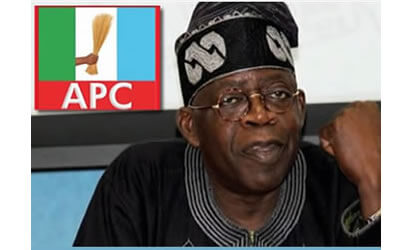
Over the years, Tinubu’s influence grew as the party’s size ballooned. But it soon became apparent that other stakeholders who joined his crusade would not continue to play the second fiddle forever. Thus, it didn’t come as a surprise to political watchers that the Ibadan meeting adopted a collegiate system of leadership, which was said to have been pushed through by forces categorised as the Abuja group. The other group in the APC’s balance of power of power in the region is said to be the Asiwaju conglomerate. Though these divisions have been largely dispelled by leaders of the party in the geopolitical zone, the November 2016 governorship election in Ondo State had blown open the lid on the sharp divisions, with the Abuja group, comprising young Turks in the party, with assistance from the seat of power and outside the region, getting a one-up in the tussle that saw Mr Rotimi Akeredolu emerge as the governor despite the reported nonchalance of Tinubu to his aspiration.
How far can the Young Turks go?
But following the adoption of the collegiate system and with Tinubu acceding to the proposal, political observers have begun to raise questions as to how the young Turks were willing to go in dismantling Tinubu’s well-oiled political machinery in the South-West. Will they eventually wrestle power from the ‘Lion of Bourdillon?’ Will Tinubu get stronger with this? What happens to his politics? In fact, what happens to the APC across the South-West states?
Other critical questions had also been raised about adopting the collegiate system in running the APC, with a key APC leader who spoke on a condition of anonymity saying: “We still don’t know how they want the thing to operate. Who and who would be in the college at the expense of the other, considering the fact that each of the leaders has his own sphere of influence and strength? It is also a thing to be determined if there would be parity or not in such college and will all the leaders that would make the college be of equal influence and clout in its affairs.”
A college is defined as “a body of persons having a common purpose or shared duties,” but in the world of politics, there are mentors, also commonly referred to as leaders, and their surrogates. Therefore, observers have begun to ask whether mentors and protégés in the APC would share equal amount of power when they find themselves in the college as decision makers and would their collective decisions affect the fortunes of their party, especially when it counters the expectations of the members if the party?
APC collegiate leadership system, Lagos and Tinubu’s political structure
Following the proposal by leaders of the party in the South-West to adopt the collegiate system in the administration of the party in the region, after a critical meeting of its stakeholders in Ibadan, the political capital of the South-West, watchers of political developments have maintained that the idea might be potent enough to end the sharps divisions that have dogged the APC in the South-West for some time now.
One of the aims of the parley was to reconcile the contending forces in the region and isolate the factors that have made the APC a disunited front since it assumed office in Abuja in May 2015.
The quest for reconciliation appears the more crucial as the governorship elections in Ekiti and Osun are around the corner, before the next general election in 2019.
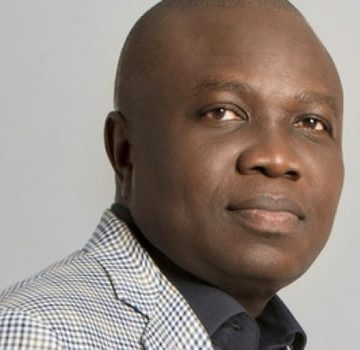
The divisions in the party had become pronounced in the November 2016 Ondo State governorship poll in which former Nigerian Bar Association (NBA) president, Mr. Rotimi Akeredolu (SAN), emerged winner with Tinubu, after disagreeing with the choice of Akeredolu as the APC candidate for the election as against his own candidate, Chief Olusegun Abraham, openly castigating the APC national chairman, Chief John Odigie- Oyegun. Eventually, there was a noticeable crack in the relationship of Tinubu and some of Buhari’s ministers in the region, who were believed to have worked with others to install Akeredolu.
Before the elections, Akeredolu was said to have boasted that the result of the APC governorship primary would shock Tinubu, a claim that appeared to have been an outpouring of the growing resentment in the party against party chieftains coming from outside their states to impose candidates.
Thus, the key resolution adopting the collegiate system at the APC South-West parley has been praised as an effort to prevent the fortune of the party from going down as a result of imposition of candidates by forces outside the states. Sunday Tribune gathered that the measure was aimed at restoring peace to the party in the six states of the South-West. But close Tinubu allies who pleaded anonymity maintained that it was more of an attempt to whittle down the influence of the APC National Leader.
Insiders in the party said that the collegiate system idea was borne out of the agitation by young elements in the party who were out to challenge the idea of some leaders “imposing their will on the collective desire of the people, particularly when it comes to electing representatives to various offices in the country.”
Prior to the adoption of the collegiate system, happenings within the APC tended to justify Tinubu’s power as the numero uno. His activities at the national level also confirmed that much. He was linked with the vice-presidency seat in the buildup to the 2015 election, before Vice-President Yemi Osinbajo eventually emerged. He was also seen as the unseen hand behind the situation in the leadership situation in the National Assembly, having adopted Senator Ahmed Lawan for the seat of Senate President and Honourable Femi Gbajabiamila as Speaker.
So, where does the APC collegiate system in the South-West leave Tinubu and the Bourdillon powers? That is a question the leaders of the party have to answer in details. From the start, the party had been weaved around Tinubu and it was not surprising he wielded more powers as the party grew in size and influence. But it was only natural that others who joined his pioneering efforts at building the party would equally demand their space as the party grows bigger. With the resolution of the APC South- West, Tinubu may have to contend with the reality of seeing his political influence restricted to Lagos State where he would have to contend with other power blocs, whether real or imaginary.
The reality of the collegiate system in Lagos could throw up other power blocs, including the immediate past governor and current Minister of Power, Works and Housing, Mr. Babatunde Raji Fashola, who also has his loyalists and supporters, as well as the incumbent governor, Akinwumi Ambode. Besides Ambode, there is the ever-present National Legal Adviser of the APC, Mr. Muiz Banire, who was once quoted to have said that no empire lasts forever.
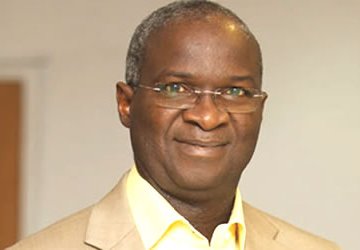
It would be recalled that during the last gubernatorial primaries of the APC in the state, Fashola, who was governor then, had thrown his weight behind Mr. Obafemi Hamzat, his then Commissioner for Works, while Tinubu pitched his tent with the incumbent, Ambode. Though a resolution eventually followed with the emergence of Ambode, it is not certain if both Tinubu and Fashola had reconciled fully over the issue or whether those who were one way or the other offended by the way and manner they were sidelined in the governorship primary still do not have an axe to grind with Tinubu.
Political analysts are also not completely ruling out the possibility of Fashola nursing a personal ambition to install his own man as next governor in Lagos State like Tinubu has done twice, now that he (Fashola) and some other young Turks in the APC are close to the seat of power in Abuja.
Though there had been other views regarding the Ibadan resolution, with political observers noting that it might be an attempt to create a readymade alibi for the APC leaders to ditch President Muhammadu Buhari in view of the perceived marginalisation of the South-West. Others are claiming that the plot out there could be to determine the fate of President Muhammadu Buhari in the 2019 race and offer the excuse that the collegiate system had limited Tinubu’s influence and that he was unable to deliver to the president as a result.
Whichever way things pan out, the fact remains that Tinubu’s political sagacity as well as the resilience of his empire is being put to test as a result of the emerging collegiate system. For Tinubu, who looms larger within and outside the state’s political turf, this appears a challenging time. He has to prove even now and against all odds that he has more political tricks up his sleeves.
Oyo APC: Can Shittu re-draw the map?
The APC has often been referred to as a political formation where the essence of the theory of salad bowl rings true. The theory, first deployed in anthropological studies, simply means that all items in a salad bowl do not blend but retain their separate identities in a part-whole relationship.
Therefore, as it is nationally for the APC, so it is in Oyo State where the party shows all the signs of a three-house family eternally locked in a supremacy battle.
The biggest and largest of the groups is headed by Governor Abiola Ajimobi. This is naturally so because the governor wields enormous power as the state’s chief executive officer with humongous capacity to dispense endless political patronage.
The third and by far the least-populated group, is headed by the Minister of Communications, Adebayo Shittu, who was a lawmaker in the Second Republic lawmaker and former Justice Commissioner in the state. This group had paled into insignificance in the run-up to the last election. Shittu’s appointment as minister by President Muhammadu Buhari, however, re-energised the faction into reckoning.
Shittu’s appointment had sparked a bitter row in the party, as Governor Ajimobi and the party had forwarded another name for the appointment. But the announcement of Shittu against touted names for the job set tongues wagging that President Buhari was, indeed, determined to entrench and empower the Congress for Progressive Change (CPC) wing in the structure of the APC across the country.
Despite initial opposition from the governor and the party, groups within the APC from Oke-Ogun segment queued behind Shittu whose appointment was seen by them as a stepping stone to realise the vision of having an Oke-Ogun person as the governor of the state for the first time in 2019. The governorship has resided mainly in Ibadan, which has the largest voting strength and power has only fortuitously oscillated to the Ogbomosho axis once, leaving Ibarapa, Oyo and Oke Ogun out of the governorship.
A segment of the party, represented particularly by those called Lamists (loyalists of former governor Lam), that had waited patiently for a counterforce to the force from the governor’s camp, saw a golden chance in Shittu’s ministerial position and teamed up with him for the sole aim of achieving such purpose through the power warehoused in him as the second biggest leader in the party after the governor.
But the minister, convinced that Governor Ajimobi holds all the aces as touching the party’s standard-bearer for the 2019 governorship election, rather chose to worm himself into the governor’s heart. Consequently, the goodwill initially enjoyed by the minister from the heads of the various groups that hitherto supported him outside the thin CPC circuit waned, as the people felt pained that he was genuflecting before the governor and not in a hurry to assert his joint leadership in the party. He has since been shorn of the support of such groups, which have looked elsewhere for a new alignment and coalition.
With the political actors now putting the points and the lines together to arrive at the graph for 2019, the APC family in the South-West is fractured into two main groups, the pro-Buhari and pro-Senator Bola Tinubu groups. While Governor Ajimobi shows himself as a non-aligned leader in some respect, preferring to seek a common ground for the two groups, Shittu has naturally pitched his tent with the pro-Buhari camp, which has Governor Ibikunle Amosun, Solid Minerals Minister, Dr Kayode Fayemi and Power, Works and Housing Minister, Babatunde Fashola its arrowheads.
The young Turks have literally forced the pill of collegiate leadership down the throat of the traditional leaders in the zone. By this arrangement, the sphere of influence of all leaders as far as the control of the party structure is concerned to their respective states.
The minister’s camp appears battle ready for the task of asserting itself in the battle for the control of the party’s structure and the occasion to demonstrate this was the run-up to the shelved local government election in the state. In an attempt to get his loyalists in the Senator Ajimobi Campaign Organisation (SENACO) to emerge candidates for the election, the governor had mooted the idea of selecting 10 delegates from each ward to conduct the primaries. This was after all attempts to resolve the issue of consensus candidates had not been well-received, especially by the Lamists and Shittu’s group. A petition to the national headquarters of the APC warning against the abandoning of elected party executives for selected delegates was said to have emanated from Shittu’s camp.
But can Shittu challenge Governor Ajimobi to a leadership wrestling in Oyo APC? That is the question that has elicited three responses from those in the party and observers. The first is that, backed by the powers-that-be in Abuja, Shittu can dismantle any structure and put in place a new one for President Buhari. The second reaction is that though the strength of Abuja influence cannot be underestimated, it will take a miracle to win any election if the “Abuja boys” forced their way through in the state.
But to observers, the third view is that wherever the candidate comes from, whether from the Buhari’s camp or Governor Ajimobi’s, the socio-economic conditions of the citizens as a result of the perceived poor management of the country’s economy will be an albatross for the candidate and its party. But can Shittu upturn the apple cart? This is a question which answer is yet to be seen.
APC collegiate system: The emerging trend in Osun
With the recent adoption of the collegiate system by the APC in the South-West, the political calculations in the state’s chapter of the APC have begun to assume a complex dimension, with the development likely to upset the current leadership arrangement in the party.
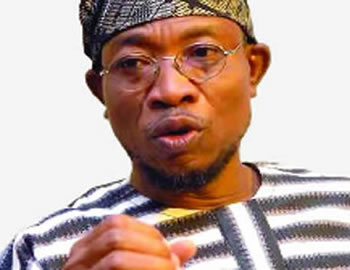
Though there are some existing leaders of the party controlling its structures, the new collegiate system is bound to pave the way for the emergence of new leaders, which the party believed would allow for a smooth running of its affairs in the state.
Political pundits, however, hold the view that the new system had its defects and would determine the future of the APC in Osun ahead the 2018 governorship election in the state.
By the current arrangements in the party, the state governor, Mr Rauf Aregbesola, is the number one leader of the party in the state, from Ilesa in Osun East Senatorial District. The governor has a firm grip of the party and determines who becomes what in the present political dispensation, a development that made him the numero uno in the party. There are, however, former Governors Isiaka Adeleke, Bisi Akande and Olagunsoye Oyinlola, who are considered as leaders in their own rights, with supporters in the party spread across the states. Though there has not been visible supremacy tussle among these four, a development that has contributed to the hitherto peaceful atmosphere in the Osun APC, observers noted that there are internal politics and intrigues over the vesting of the leadership of the party in the governor.
Emerging trends in the state have also pointed to the fact that the proponents of the collegiate system, indeed, had their eyes on Osun State, based on the suspicion that the governor, seen as an ardent loyalist of Senator Tinubu, might always take his side in the event of any political struggle. One of the people believed to likely benefit from the collegiate system, therefore, is the Deputy Speaker of the House of Representatives, Honourable Lasun Yussuff, who appeared to be leading a section of the party, which is not on the same page with the governor.
Also prominent in the emerging political trend is Senator Adeleke, who currently represents Osun West Senatorial District in the National Assembly. Though his being a former governor of the state and presently a senator has accorded him huge political strength, the present system whereby the governor appears to be the say-all and be-all has been said to be dwarfing his political reach in his new party.
Therefore, with the proposition of a collegiate system, which would see each leader control his area of strength, the questions in Osun State APC is who would be the overall leader of the party, especially when Aregbesola leaves office as governor in 2018? Will the new system solve the existing problems in the party without throwing up fresh ones?
APC collegiate: Whither Ekiti APC?
For the Ekiti State chapter of APC, not a few observers have expressed their opinions on what the leadership of the party might look like when the collegiate leadership becomes fully operational. Now that it is the college of leaders that would determine who gets what in the various states, many are toying with the thought that Ekiti, which governorship election is expected to come before that of any other state in the region, would be a testing ground for the idea.
Currently in the state, there are many leaders of the APC, who are believed to competently fit into the mould of the new thinking, with Ekiti having notable APC leaders like the first civilian governor of the state, Chief Niyi Adebayo; the National Deputy Chairman of the party, Chief Segun Oni; Minister of Solid Minerals Development, Dr. Kayode Fayemi (both of whom had also served as governors of the state at various times); Senator Babafemi Ojudu, who represented Ekiti Central in the last Senate and now serves as a presidential aide; Michael Opeyemi Bamidele, who was a member of the House of Representatives in the last dispensation; Mr. Olusegun Osinkolu, Mr. Femi Bamisile, Chief Ropo Adesanya and many others found in different parts of the state.
There are also such leaders as Senator Ayo Arise, Hon. Bamidele Faparusi, Senator Gbenga Aluko, Chief Jide Awe, Chief George Akosile, who also wield influence in the party and when these are weighed in their various capacities as leaders of the party, they achieve results that are capable of putting the party where they want it to be. The various leaders have their leanings. It is the belief in many political quarters that Opeyemi Bamidele is a staunch loyalist of Tinubu while others leaders from the state like Dr Fayemi is believed to have a frosty relationship with him. Should they fall in the same college as decision makers, there could be friction which could affect the party.
The executive of the Ekiti State chapter of the party has been in office since 2014 when it lost the governorship election, without the chairman of the party, Chief Jide Awe. Some of the leaders have advocated for the dissolution of the executive led by Chief Awe, partly on the grounds that the executive didn’t perform well in the last governorship election. Thus, the differences in the party along leadership lines and sundry internal wrangling may become more pronounced when this leadership style becomes operational.
With the collegiate system proposal, whereby it is the college of leaders that would determine who gets what in the various states as well as the state of the parties, the question now is: Who would constitute the college of leaders that would be thrown up by these policy?
However, the proposal has also been praised as being capable of ending the one-man show in the party, which some of the party members have described as one of its undoings in the polity.
“For instance, when the strength of character of a leader like former Governor Oni and the intellectual wealth of Dr Fayemi are combined, this would give the party enormous leverage in the polity. In a similar vein, when the experience and clout of the likes of Chief Adesanya, Chief Akosile and Chief Osinkolu are brought to bear in the same cause for which young Turks like Bamidele, Faparusi, Bamisile, Gbenga Aluko are totally committed, then the sky will be the limit for the party,” the source said.
But in politics, it is common knowledge that issues aren›t defined in as straight words and sentences as they should be, because of various contending interests. This is one of the reasons the new proposal would be of great interest to the various divides in the Nigerian political firmament. They would want to see how this arrangement would be put in place and by whom, and what becomes of it.
The other political players would watch keenly where the collegiate leadership, suggested by some of the young Turks in the South-West APC and accepted after what reports described as a prolonged haggle, would leave the APC in the region. Until then, Nigerians are waiting.
APC collegiate system
Though there is no election in sight in Ondo State, it is clear that the greater percentage of those who will make the electoral college in the state will come from the political office holders such as the governor, senators, House of Representatives and House of Assembly members. Others are the chairman of the party, party executive, party elders and few others, depending on the criteria used by the party leadership in the state.
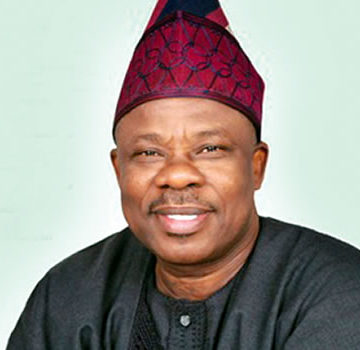
There is no doubt that the new system will throw up some politicians from one zone above the others, considering the number of politicians and political leaders in the state.
Presently, the Northern senatorial looks to have the highest number of political office holder in the state, who will make the list of the electoral college. Three of the nine House of Representatives members representing the state are from this zone. Similarly, the Senator representing the district is also an APC member while the area produced four out of the five House of Assembly members in the state. The zone, according to observers, had, until the election of Mr Akeredolu, been sidelined in the political scheme of things in the state. But with the Electoral College arrangement, the northern senatorial district might hold the ace in determining where the pendulum swings in any primary election.
The problem, however, is that with the arrangement, the Ondo Central and Ondo South zones might not favoured, considering the low number of APC political office holders from the two zones. In the central senatorial district, there are the senator representing the district, Senator Tayo Alasoadura and the lawmaker representing Akure South/ North at the House of Representatives, Hon. Afe Olowookere.
—Additional reports by BOLA BADMUS, DARE ADEKANMBI, OLUWOLE IGE and HAKEEM GBADAMOSI.
WATCH TOP VIDEOS FROM NIGERIAN TRIBUNE TV
- Let’s Talk About SELF-AWARENESS
- Is Your Confidence Mistaken for Pride? Let’s talk about it
- Is Etiquette About Perfection…Or Just Not Being Rude?
- Top Psychologist Reveal 3 Signs You’re Struggling With Imposter Syndrome
- Do You Pick Up Work-Related Calls at Midnight or Never? Let’s Talk About Boundaries


